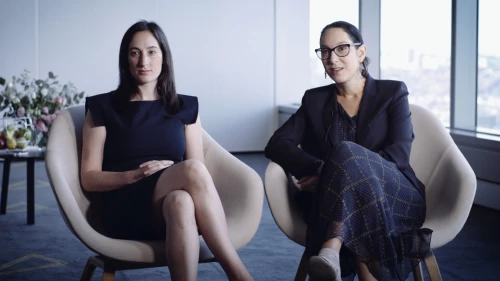
Related Expertise: Diversity, Equity, and Inclusion, Gender Equality
What’s Working to Drive Gender Diversity in Leadership

The Key Themes, Unlocked
What's Working to Drive Gender Diversity in Leadership
BCG’s research with 20 of Australia’s largest organisations finds that although companies are investing significantly to achieve gender diversity, progress in corporate Australia remains slow. In 2016 the gender gap at the top continued to widen with women constituting only 5% of CEOs at Australia’s largest public companies.
Our research provides insight into how gender and seniority affect the perception of gender diversity and which areas require the greatest effort. The report also provides a snapshot of what is working for employees and outlines opportunities for CEOs to consider in order to increase gender diversity in their organisations.
So, What is Working?
Our research reveals that companies are at a critical point on the path to gender diversity.
Companies are investing significantly to achieve gender diversity, however progress in corporate Australia remains slow. Despite pressure to ‘tick the box’ on diversity enablers, many companies find it challenging to measure which initiatives are most effective in driving change.
In particular, our research highlights the biggest obstacles to progress and the levers that work best to overcome them. Challenges in retaining and promoting high-potential women are consistently cited as the largest impediments to progress – yet these are accorded some of the lowest shares of diversity effort.
We examine how best-in-class companies are tackling these challenges by applying the interventions shown to be most effective - in particular by increasing the viability of flexible work models, engaging men and middle managers as diversity champions, and bringing rigour, discipline and measurement to the company’s gender diversity strategy.
Gender Gap Widens With Seniority
Despite significant focus, attention, and investment, progress toward gender-diverse leadership at the higher levels of Australian companies remains variable and slow.
Gender and Seniority Influence Perception of the Scale and Scope of the Challenge
Men and senior managers tend to have an overly positive view of the true state of gender diversity in their organisations and of the challenges that persist. Men also show greater reluctance to redistribute work across the team to enable part-time working.
Our research shows that when it comes to gender diversity in leadership, the scale and scope of the challenge is perceived differently depending on gender and seniority.
Effort Is Not Always Aligned With Areas of Greatest Need
Almost two-thirds of women see retention and advancement as hurdles at their companies. Yet advancement and retention challenges are typically accorded some of the lowest share of diversity effort.
ABOUT BOSTON CONSULTING GROUP
Boston Consulting Group partners with leaders in business and society to tackle their most important challenges and capture their greatest opportunities. BCG was the pioneer in business strategy when it was founded in 1963. Today, we work closely with clients to embrace a transformational approach aimed at benefiting all stakeholders—empowering organizations to grow, build sustainable competitive advantage, and drive positive societal impact.
Our diverse, global teams bring deep industry and functional expertise and a range of perspectives that question the status quo and spark change. BCG delivers solutions through leading-edge management consulting, technology and design, and corporate and digital ventures. We work in a uniquely collaborative model across the firm and throughout all levels of the client organization, fueled by the goal of helping our clients thrive and enabling them to make the world a better place.
© Boston Consulting Group 2025. All rights reserved.
For information or permission to reprint, please contact BCG at permissions@bcg.com. To find the latest BCG content and register to receive e-alerts on this topic or others, please visit bcg.com. Follow Boston Consulting Group on Facebook and X (formerly Twitter).






